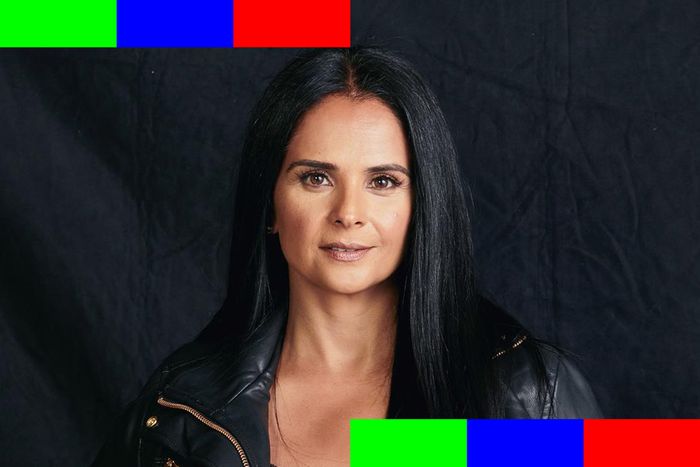
This story also ran in Buffering, Vulture’s newsletter about the streaming industry. Head to vulture.com/buffering and subscribe today!
Netflix’s ability to turn non-English-language shows into worldwide hits is nothing new, with series such as Narcos, Dark, La Casa de Papel (Money Heist), and Elite all breaking out in big ways over the past five years. But those triumphs are starting to pale next to the emerging success of Squid Game, a hugely addictive dystopian drama from South Korea that, barely two weeks after its premiere, has become a massive social-media phenom — and the No. 1 show on the streamer’s popularity charts in 90 countries, including the United States. Just how big is it? Netflix co-CEO Ted Sarandos went on record this week predicting that writer-director Hwang Dong-hyuk’s creation might soon dethrone Bridgerton and The Witcher as the platform’s most sampled original-series launch ever.
As always, when you’re trying to quantify streaming audiences, it’s important to keep in mind that Netflix’s claims about the popularity of any of its titles aren’t independently verified and, for a dozen different reasons, should not be compared to more established measurements such as Nielsen ratings. That said, there is ample evidence beyond the streamer’s own spin to suggest Squid Game — in which a group of financially challenged people hoping to win millions end up in a Hunger Games–style competition for survival — really is turning into a legit pop-culture sensation and attracting a large worldwide audience.
➽ Parrot Analytics, whose “demand index” quantifies content popularity by looking at everything from online buzz and Google searches to the frequency of illegal downloads, this week called Squid Game “a word-of-mouth global sensation” and noted that, as of Sunday, the series is now the most in-demand show in the world, with 79 times as much audience interest as the average title. It’s gaining traction in the U.S., though not quite as rapidly as elsewhere: On Monday, the day before Sarandos made his comments, Squid Game was the 18th most in-demand U.S. series per Parrot, generating about 33 times the demand of a typical show here, and second only to consistent chart-topper Stranger Things among all Netflix originals.
➽ Squid Game has also broken through with audiences more quickly than some other recent Netflix hits, according to Parrot, soaring to the top of the company’s global-demand index faster than Money Heist’s third season or the debut of U.K. import Sex Education.
➽ Although Netflix didn’t widely distribute advance sceeeners of the show to the U.S. press — sending them only to outlets that requested them, a rep for the platform says — Squid Game is now slowly building a base of positive reviews, per aggregators Metacritic and Rotten Tomatoes. The amateur critics over at IMDb have also weighed in, pushing the show to No. 2 on the site’s ranking of the world’s most popular TV shows, ahead of Ted Lasso but just behind Sex Education.
➽ And yes, of course, the memes have arrived. Big time.
Netflix’s global TV head, Bela Bajaria, says her colleagues at Netflix Korea, under the guidance of regional content chief Minyoung Kim, had long expected big things from Squid Game, particularly when the first footage started coming in. And because consumption of K-dramas among U.S. Netflix subscribers has exploded by 200 percent in the past two years, the company was optimistic that Hwang’s epic story could overperform here and in other parts of the world. “But we could not imagine that it would be this big globally,” Bajaria tells Vulture. “We always knew it was going to be a signature title for Korea, but there’s no way to have anticipated it would be this big.”
The near-instant enthusiasm for Squid Game is all the more impressive because the series isn’t based on any preexisting intellectual property, such as a book or comics series, and thus didn’t arrive with a corresponding built-in fan base or even the name recognition of something like Lupin. And while Bajaria says the show did get a substantial promotional push in Korea and other Asian countries, there was hardly any marketing in the U.S. outside of a trailer tailored to American audiences. Instead, Squid Game seems to have broken out simply through what the exec calls “an organic fandom,” one fueled in no small part by Netflix’s ability to put the show into more than 200 million homes around the world at once. Subscribers “tweeted and TikToked about it, and it just grew through word of mouth,” Bajaria says. “People hear about it, people talk about it, people love it, and there’s a very social aspect to that, which does help grow the show outside of what we do.”
It also helps that, in addition to shelling out billions to produce its programming, Netflix invests millions more to make sure shows like Squid Game are easily watchable even for folks who don’t speak the language used in them. Netflix offers subtitles in 37 languages and dubs its shows in 34, far more than any other major streamer. That means subscribers who don’t have the patience for subtitles (read: a lot of Americans) are now much more likely to get invested in series and movies they otherwise would have skipped (dubbing scolds be damned).
This, along with streaming’s lack of time-and-space constraints, has dramatically expanded the potential audience for local-language content. Catching a new foreign-language movie, for example, once required residency in a big city or a tolerance for driving a few dozen miles in search of an art-house cinema. But in the streaming age, even if “you might not be the kind of person who would want to do that, you might click ‘play’ on Squid Game,” Bajaria says. Netflix’s decision to make international content widely available and easy to watch, she adds, “takes away the barrier of entry … and opens up different storytelling for more people.” And it’s clearly working in the U.S.: Bajaria says streaming of all non-English content is up 71 percent since 2019 among the platform’s American audience.
Bajaria, who spent two years focused on nothing but Netflix’s non-U.S. content before taking over the top content job at the streamer late last year, says her time spent outside Hollywood underscored the importance of investing in international creators. While American-made entertainment remains a massive draw globally and a big selling point for the service, Netflix’s ability to bulk up its subscriber base is increasingly dependent on giving non-American audiences shows and movies from local creators. “If we’re going to have members in dozens of countries, we want programming that they love and that resonates with them — they see themselves represented, they see their stories,” Bajaria says. That these shows can then break out and become hits in other regions — or, as with Squid Game, a global sensation — is an added bonus for the streamer. “If something travels globally, it means our members really enjoyed watching something they may not have seen before,” she adds. “But the local impact is the most important thing.”
Local-language Netflix originals thriving globally may not be a new concept in 2021, but the speed and scale with which Squid Game has expanded suggests that the platform’s capacity to create its own franchises from content grown anywhere is getting exponentially stronger, vindicating a strategy that execs at the streamer started shaping years ago. When I spoke to Sarandos in 2018 for a series of stories about how Netflix operated, he told me that, as happy as he was with the early success of non-English shows such as Dark and Money Heist, he was shooting for something bigger. “The exciting thing for me would be if the next Stranger Things came from outside America,” he said. “Right now, historically, nothing of that scale has ever come from anywhere but Hollywood.”
Sarandos and other execs believed that would become more likely as the streamer’s base of subscribers in non-English-speaking countries expanded and even surpassed its core membership in the States. When that happened, they theorized, the language of a production would become almost irrelevant to its prospects for success.
It turned out to be a pretty smart theory, one that paved the way for Squid Game to become a whale of a hit.
During my chat with Bajaria, she also revealed a few more tidbits of information about Squid Game:
About That Name…
There was a debate over the title: Bajaria tells me there “definitely was a conversation” about what to call Squid Game, though the final decision wasn’t made in Hollywood. “The team in Korea debated the title, but when they watched it, they were like, ‘This is what it is. It’s interesting, and it’s kind of odd but really memorable.’ So they really did lean in and bet on the title. Now I can’t imagine it being called anything else.”
Season Two on the Way?
Nothing firm has been decided about a second season of Squid Game, but Bajaria sounds upbeat about the prospect and suggests that it would depend on Hwang’s schedule and his desires for how to proceed. “He has a film and other things he’s working on,” she says, noting the creator likes to collaborate with “other writers” who might come onboard for a new chapter. “We’re trying to figure out the right structure for him.”

